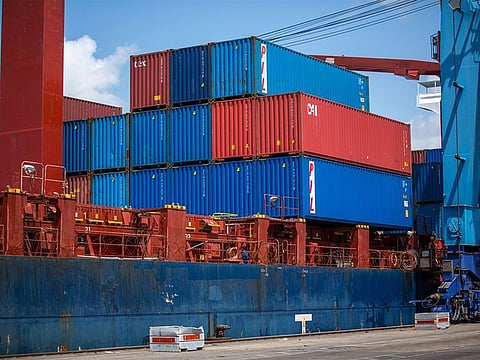Middle East states can unlock $2.5tr GDP potential
Easiest way would be to roll back tariffs that get in way of freer trade within Mena

Staff Report
Dubai: Better integration between Middle East and North African economies and that of Pakistan could “unlock $2.5 trillion in (combined) GDP” and create up to 100 million new jobs. A good place to start would be to improve trade flow within these countries.
Currently, such trade represents only 13 per cent for this region. It compares poorly with the 63 per cent intra-regional trade in the EU zone. “Current barriers to the free movement of goods and services remain a significant obstacle to regional economic growth,” states a report issued by Majid Al Futtaim Group, released at the World Economic Forum.
“Trade costs (including costs related to transportation, time delays, border controls) represent 20-40 per cent of the final delivered price for Middle East North Africa’s non-oil exports. Additionally, non-tariff barriers are obstacles to both regional as well as global integration.”
The economic impact from the free movement of goods and services — by doing away with tariff and non-tariff barriers — as well as having common standards is estimated at $130 billion in GDP annually. The report reckons that a majority of this — about $125 billion — can be derived from pulling back non-tariff barriers.
Fast-track on deregulation
Apart from freer flow of trade, another area Middle East economies could improve upon is regulation of key sector — even a “selective” one would do.
That would mean coming up with initiatives “prioritised and phased over time, starting with those with the highest potential for growth in the short- and medium-term,” the report adds.
Sectors such as transportation, agriculture, manufacturing and financial services could have the biggest benefits, while telecom and F&B too could emerge with credit from an easing up.
According to Alain Bejjani, CEO at Majid Al Futtaim — Holding, “The MENAP region has a huge opportunity to accelerate economic growth and unlock the potential of its people through better integration of its markets. We must build new platforms of cooperation among stakeholders, bringing them together to define a clear path forward for the region so that it can realise its full potential economically and socially.”
Only two companies in the Middle East, North Africa and Pakistan are in Fortune 500. “The scale of even the largest companies in the region is limited when compared to Europe — in revenue, geographical footprint and other factors,” the report said. “Total market capitalisation is around ten times lower in MENAP than that of the 15 EU countries.
“The maturity of capital markets also remains limited within the region, signalling the substantial untapped potential for regionally-driven growth.”



